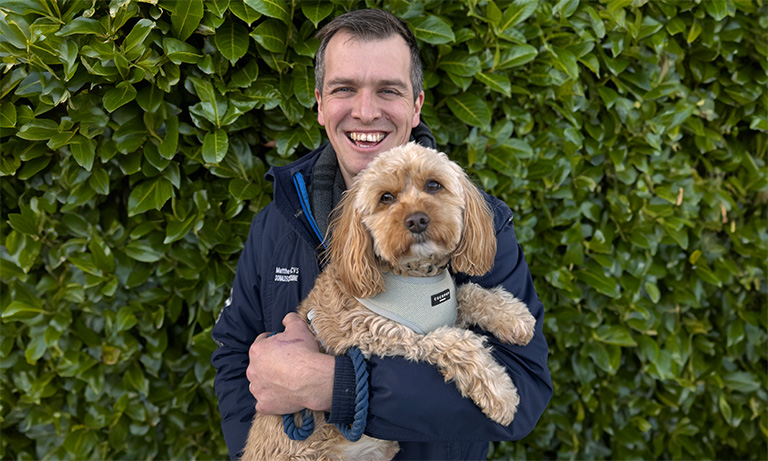Standing up for the veterinary profession
08 Aug 2024
20 Dec 2024 | Matt Jackson-Smith
In this new blog, vet Matt Jackson-Smith, who stars in Channel 5’s show The Yorkshire Vet, warns pet owners about the dangers of festive fare to help avoid Christmas chaos and emergency trips to the vet.

It’s that time of year again when vets are stocking up their medication cupboards to deal with all sorts of festive hazards. I’ve lost count of how often I have had to make dogs sick after they’ve eaten chocolate by the bucketload or remove tinsel which has gotten lodged where it shouldn’t!
The last thing anyone wants to do at Christmas is make preventable, emergency trips to the vet. But while the odd mince pie or square of chocolate from an advent calendar may not seem like a serious risk, as vets sadly know, the consequences could be devastating.
Mince pies, Christmas pudding and even seasonal ornaments such as tinsel and festive plants like holly may seem like innocent, yummy treats or decorations; however, for pets, they are tempting but potentially deadly.
Theobromine in chocolate, raisins and other dried fruit – found in mince pies or Christmas puddings - onion, garlic, the sweetener xylitol and seasonal decorations like mistletoe and holly can all be dangerous, and even fatal, to dogs and cats if eaten.
The best advice I can give pet owners at this time of year is keep festive treats and decorations out of reach from dogs, cats and other pets and keep a close eye on what they eat over the holidays. I have a one-year-old at home, and it has certainly taught me to be even more wary of little ones in particular! Our daughter loves to give dog treats to our cavapoo Harry, so just like everyone else we will be watching to make sure they are the right ones and that Harry can enjoy his Christmas just as much as us, with no emergency trips to the vet!
It’s also not just festive-themed items clients need to be aware of but also common, winter-long hazards like antifreeze. It is particularly tasty to dogs and cats - but also incredibly toxic and damaging for their kidneys.
Sadly, it’s not uncommon for pets to bite off more than they can chew at Christmas. BVA Voice of the Veterinary Profession research shows that four in five companion animal vets saw at least one case of toxic ingestion over the 2021/2022 festive period in dogs and cats, with cases varying from dogs with chocolate poisoning to cats who have eaten seasonal plants or ornaments.
The festive season is full of joy, but it also comes with hidden dangers for our furry friends. Here are my tips for clients to help ensure their pets have a safe and happy holiday:
Many festive foods are toxic to pets so it’s important to keep them away from your animals and to let your guests know the dangers too. Common culprits include:
Even with all the care in the world, animal accidents and emergencies can still happen. If clients are concerned or unsure if their pet has consumed something it’s best to call the vet to get advice to make sure. It’s far better to be safe, than sorry at a later date.
Have a happy, and safe Christmas.
Get tailored news in your inbox and online, plus access to our journals, resources and support services, join the BVA.
Join Us Today